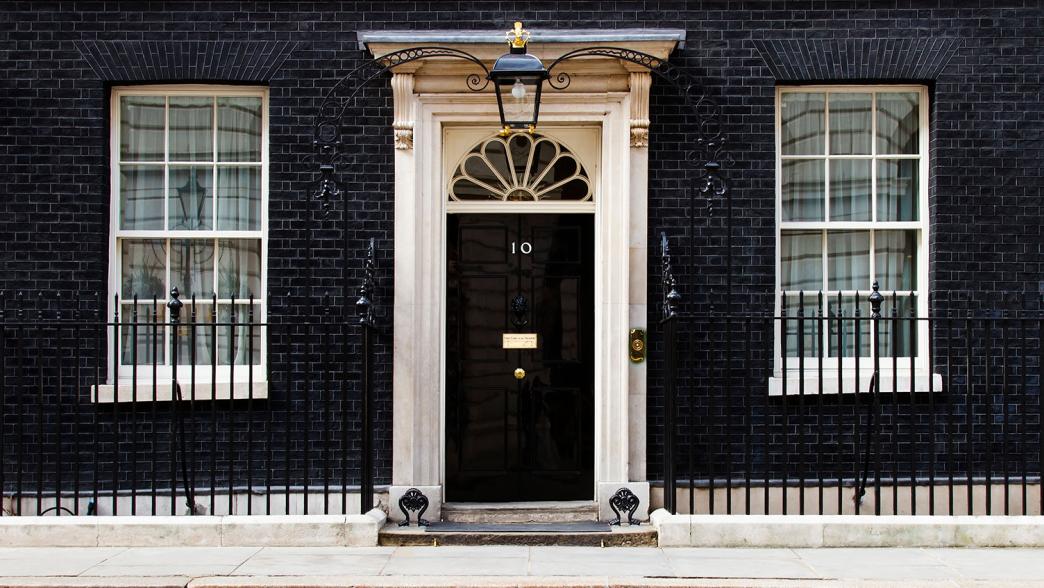Working with Number 10
A good relationship with Number 10 is key to being a successful minister.

"I hadn’t appreciated how the whole policy and spad network is repeated in Number 10 as it is in each department. They have a mini health department at Number 10. I didn’t know that, and it takes a while to get to grips with that."
Steve Brine Parliamentary Under Secretary of State for Public Health and Primary Care (2017–19)
How to work with Number 10
The prime minister is the face of government and sets its strategic direction, but their residence and office at 10 Downing Street is a small organisation that must work principally through larger line departments which have the resources to develop and deliver policy.
Working with Number 10 is key to being a successful minister. The prime minister – and so by extension, the team of officials and political advisers supporting them – wields powerful influence which can help you to get things done in government. Conversely, demands from Number 10 can come as an unwelcome interference in departmental business. Some ministers complain about officials in Number 10 overturning policy proposals at the last minute or micromanaging their speeches and press releases.
Who do you need to know in Number 10?
10 Downing Street is staffed by a team of special advisers appointed by the prime minister alongside a set of permanent civil servants. Together they support the prime minister in their everyday duties, help them to establish and oversee the government’s overall strategy and policy priorities, and communicate these to parliament and the public.
It is worthwhile familiarising yourself with the key players in Number 10. Nick Hurd, minister of state in several departments between 2017–2019, said that he “could count on the fingers of one hand probably, my direct engagement with prime ministers on any of the issues that I was working on.” Instead, communication tends to take place through proxies.
The prime minister’s chief of staff is their top political adviser, usually a political appointee, who manages special advisers across government.
The prime minister’s principal private secretary (PPS) is the civil servant who leads their private office and manages the rest of the civil service team in Number 10.
The director of communications heads up a press team which co-ordinates government announcements and media appearances.
Number 10 typically houses a policy unit including special advisers and civil servants specialising in areas such as economics, foreign affairs, health, education, housing and planning. You should be aware that staff in Number 10 will hold portfolios that overlap with your brief in the department – it is a good idea to understand who they are and what they are working on. If your department is not in alignment with Downing Street officials on policy, it may prove more difficult to get things done.
Sometimes prime ministers set up special units in Number 10 specialising in, for instance, delivery, data or legislative affairs.
"For any junior minister tactically, it would always be sensible to keep on very friendly terms with those people in Number 10."
Lord Hunt, Minister of state for energy and climate change (2008–10)
When are you likely to work with Number 10?
There are three main situations in which you can expect to work with Number 10:
- The prime minister’s priority policies – Number 10 may seek to shape and oversee a department’s approach to policies which are of particular interest to the prime minister, such as key pledges from an election campaign.
- Controversies – Number 10 will take a particular interest in decisions that may attract media attention. The ‘grid’ is used to plan government announcements, meaning that Downing Street seeks to maintain tight control of ministers’ relationships with the media. Special advisers in departments have a duty to work with Number 10 to ensure the proper co-ordination of announcements, media appearances and other interviews, articles and interventions made by their minister.
- Crises – Downing Street will usually be involved in responding to an emergency, even if it is not of the scale to warrant a COBR meeting chaired by the prime minister. For instance, Number 10 may work with Defra to handle a serious flood.
"Whatever the prime minister’s priorities are – in terms of their relevance to your brief – they become your priorities, if you’ve got any sense."
Margot James Minister of state for digital and creative industries (2018–19)
How should you approach working with Number 10?
- Think through the prime minister’s priorities and how these relate to your department. This can help you avoid later back-and-forth with Downing Street over policy – as well as recognise when you need to flag something for the attention of Number 10 and when you don’t.
- Take time to understand how Number 10 works. Familiarise yourself with the key players in Downing Street, who has influence, and how decisions are being made – for instance, by talking to your political contacts, special advisers in your department, or your private office. The structure and culture of Number 10 are highly dependent on the prime minister it serves and can be profoundly shaped by the personalities of top officials.
- You will frequently hear that “Number 10” wants something – try to establish exactly who is behind the request. This isn’t necessarily an order directly from the prime minister. The PM’s chief of staff or PPS speaks with their authority, but you may not need to respond as quickly to a request from a civil servant in the policy unit. At the same time, you shouldn’t underestimate relatively junior people in Number 10 – if they’re doing their job well, they will reflect the views of more senior officials and political advisers around them.
- Don’t expect lots of guidance from Number 10. Most of the time, its approach will be hands off. Downing Street only tends to get involved with very high-profile issues – usually when things go wrong. Get in touch when you have something to resolve but doing so unnecessarily won’t do you any favours with a busy Number 10.
"It isn’t just the relationships in the department that count, you have to set up clear relationships, understanding clearance to give yourself the political and policy elbow room often with Number 10, Number 11 and other departments."
John Healey Minister of state for housing and planning (2009–10)
Questions to ask yourself
To ensure you are able to work with Number 10 as effectively as possible, consider the following questions:
- Does the prime minister have particular priorities relevant to your brief? What are they?
- What do you know about the key players in Number 10: the prime minister’s PPS, the chief of staff and their deputies, the director of communications and press team, the head of policy?
- Are you aware which special advisers, private secretaries, or members of the policy unit in Number 10 hold portfolios overlapping with your brief in the department? Do your team have good links with relevant people in Number 10?
- Are you clear on Number 10’s expectations when it comes to public communications and ministers interacting with the media?
Find out more
If you would like to discuss any of the above in more detail, or to talk about potential training we can offer on this topic, please get in touch via ifgacademy@instituteforgovernment.org.uk.
Follow us on X (formerly known as Twitter) @ifg_academy.
IfG Academy
We help those working in government to improve it, and those outside government to understand and engage with it.
Find out more
- Topic
- Ministers
- Department
- Number 10
- Series
- IfG Academy
- Publisher
- Institute for Government